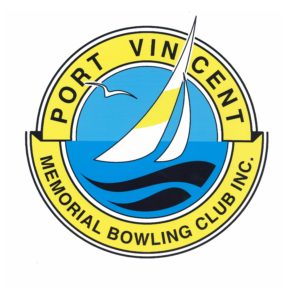Risk Management

Risk Management Strategy – Port Vincent Memorial Bowling Club Inc
INTRODUCTION
This Risk Management strategy has been developed by the Port Vincent Memorial Bowling Club Committee in order to ensure the safety of its members, visitors, volunteers and the club itself.
A risk is defined as anything untoward that can affect the Club by creating exposure to potential loss or damage. Areas where risks can occur include: · Governance · Financial · Brand · Member services · Sports competition / activities · Social events · Facilities
Risk management can be simplified into four questions:
- What untoward things could happen?
- What would be the impact?
- What can we do about it?
- How do we tell everyone about it?
By using a Risk Management Matrix (Para 4) we have identified the risks to which our club may be exposed, evaluated the risks, assessed the potential impacts and decided what control measures are required to mitigate the risks. The committee will continually monitor and review the process to ensure all risks are adequately covered
RISK MANAGEMENT PROCESS
Potential risks to the club have been identified using the ‘Risk Management Audit Check List’ provided by the SA Office for Recreation Sport & Racing. The risks have then been rated according to their likelihood of occurring (from rare to certain) and the likely consequences of that occurrence (from negligible to extreme). In this way we can decide whether the risk is acceptable (eg if the likelihood is rare and the consequence is minor) or whether the risk is not acceptable (eg if the likelihood is certain and the consequence is major or extreme) in which case mitigation strategies and activities have been put in place. The likelihood and consequences are described in the following tables
Table 1: Likelihood of Identified Risk Occurring
| Rating | Likelihood of Identified Risk Occurring in the course of a year |
| A | CERTAIN: will probably occur, could occur several times per year |
| B | LIKELY: high probability, likely to arise once per year |
| C | POSSIBLE: reasonable likelihood that it may arise over a five-year period |
| D | UNLIKELY: plausible, could occur over a five to ten year period |
| E | RARE: very unlikely but not impossible, unlikely over a ten year period |
Table 2: Consequence of Identified Risk Occurring
| Rating | Potential Impact – In terms of the objectives of the Club |
| 5 | EXTREME: many objectives will not be achieved, or several severely affected, extensive injuries, hospitalisation, event requiring investigation and outside assistance (eg, Fire Service, Police) |
| 4 | MAJOR: most objectives threatened or one severely affected |
| 3 | MODERATE: some objectives affected, considerable efforts to rectify |
| 2 | MINOR: easily remedied, with some effort the objectives can be achieved |
| 1 | NEGLIGIBLE: very small impact, rectified by normal processes |
Once each risk has a rating for both likelihood and consequence, the level of risk has been identified on the ‘Risk priority matrix’ (below) by correlating the likelihood of occurrence with the consequences of occurrence.
Table 3: Risk Priority Matrix
Consequence
| 5 | 4 | 3 | 2 | 1 | |
| A | Extreme | Extreme | Major | Major | Moderate |
| B | Extreme | Extreme | Major | Moderate | Minor |
| C | Extreme | Major | Major | Moderate | Minor |
| D | Major | Major | Moderate | Minor | Minor |
| E | Moderate | Moderate | Minor | Minor | Minor |
TREATING THE RISK
The Port Vincent Memorial Bowling Club Management Committee has determined the risks which are relevant to the Club. Some risks have been identified as being acceptable, simply because the level of risk is so low it doesn’t justify any specific further action; however many risks have been identified as needing review or mitigation. Some of the more common ways to manage risks (listed below) have been considered when the risk has been addressed.
Avoid – cancelling or postponing an activity considered to be high risk, in dangerous weather or in extreme heat.
Reduce – taking proactive measures to reduce the likelihood of a risk occurring or the consequences should an event occur. Modifying or changing the rules of a game, using protective equipment or backing up electronic data are examples of risk reduction.
Transfer – examples of transfer include taking out insurance or using waiver or indemnity releases to transfer the whole or part of the responsibility for the risk to another party. It is important to note that taking out insurance or using waivers or indemnity releases does not limit the risk of the incident itself. It simply helps to protect the organisation if an incident does occur.
Accept – the club can choose to accept the risk of an incident occurring and to carry the consequences should such an incident arise
RISK MANAGEMENT MATRIX
Port Vincent Memorial Bowling Club Risk table
|
Business Issue |
Business Risk |
Like- lihood of Event |
Consequence of Event |
Combined Effect |
Mitigation Measure |
Res-idual Risk | Accept |
Action/ Comments |
| Property | Fire | D | 5 | Major | Transfer: Effective Insurance | Moderate | Yes | |
| Property | Fire Protection | D | 2 | Minor |
Reduce: Regular Inspection of Fire Extinguishers etc |
Minor | Yes | |
| Property | Vandalism | C | 3 | Major | Transfer: Effective Insurance | Minor | Yes | |
| Property | Theft | D | 3 | Moderate |
Reduce/Transfer: Effective Insurance. Cash Safes. Key Registers |
Minor | Yes | |
| Property |
Poor Project Management |
B | 2 | Moderate |
Reduce: Regular reporting To Committee |
Minor | Yes | |
| Property |
Unsafe Facilities |
B | 3 | Major |
Transfer/reduce: Identify and make safe. Public liability Insurance |
Minor | Yes |
Steps, Ramps, Assistance rails Grab poles etc |
| Property | Unsafe Services | E | 3 | Minor |
Reduce: Regular Checking, Seek feedback |
Minor | Yes | Electricity, gas |
| Property | Asbestos | C | 5 | Extreme |
Reduce:Asbestos Register Alert Contractors |
Moderate | Yes | Commercial Asbestos Removal Procedures |
| Financial | Fraud | D | 3 | Moderate | Reduce: Regular review of finances. Two signatories. Audits. | Minor | Yes | |
| Financial | Bankruptcy | C | 3 | Major |
Reduce: Regular monitoring. Managing Cashflows |
Minor | Yes | |
| Financial | Poor Governance | E | 2 | Minor | Reduce: Regular review by Committee | Minor | Yes | |
| Financial | Poor Compliance | E | 2 | Minor | Reduce: Regular review by Committee | Minor | Yes | |
| Operations Failure | Food Safety Incident | E | 5 | Moderate | Reduce: Maintain food and drink hygiene. Training of Volunteers | Minor | Yes | |
| Weather | Extreme weather | C | 3 | Major | Avoid: Follow procedures for wet weather and extreme heat | Minor | Yes | Bowls SA guidelines |
| Materials Handling | Chemicals | C | 3 | Major | Reduce: Adhere to product Safety Data Sheets. Locked Storage | Minor | Yes | |
| Materials Handling | Machinery Refuelling | B | 3 | Major | Reduce: Refuel in open. Safe Handling procedure | Minor | Yes | |
| Personnel | Safety of Volunteers | C | 3 | Major | Transfer/Reduce: Public Liability Insurance, Training for each task | Minor | Yes | Minimise working alone |
| Personnel | Injury to players, volunteers | C | 3 | Major | Reduce: Vigilance. Defibrillator on site. | Minor | Yes | High age profile |
| Personnel | HarassmentDiscrim-ination | C | 2 | Moderate | Reduce: Vigilance. Complaints Resolution Process | Minor | Yes | Member Protection Information Officer (MPIO) |
COMMUNICATION
The Club is committed to ensuring that our risk management plan, any policies resulting from the plan and specific responsibilities, are fully communicated, implemented and adhered to by the club and our members.
We will communicate this plan via the following means:
- Including it and other relevant documentation in a committee member manual and handing it to new committee members.
- Ensure Risk Management is an agenda point for committee meetings
- Ensure that all club policies are accessible by the members
- Include risk management information in the club newsletter or in regular Facebook updates. Moderate
REVIEW
The club will review its risk management strategy annually.
Signed
President,
Port Vincent Memorial Bowling Club October 2018
Date:
